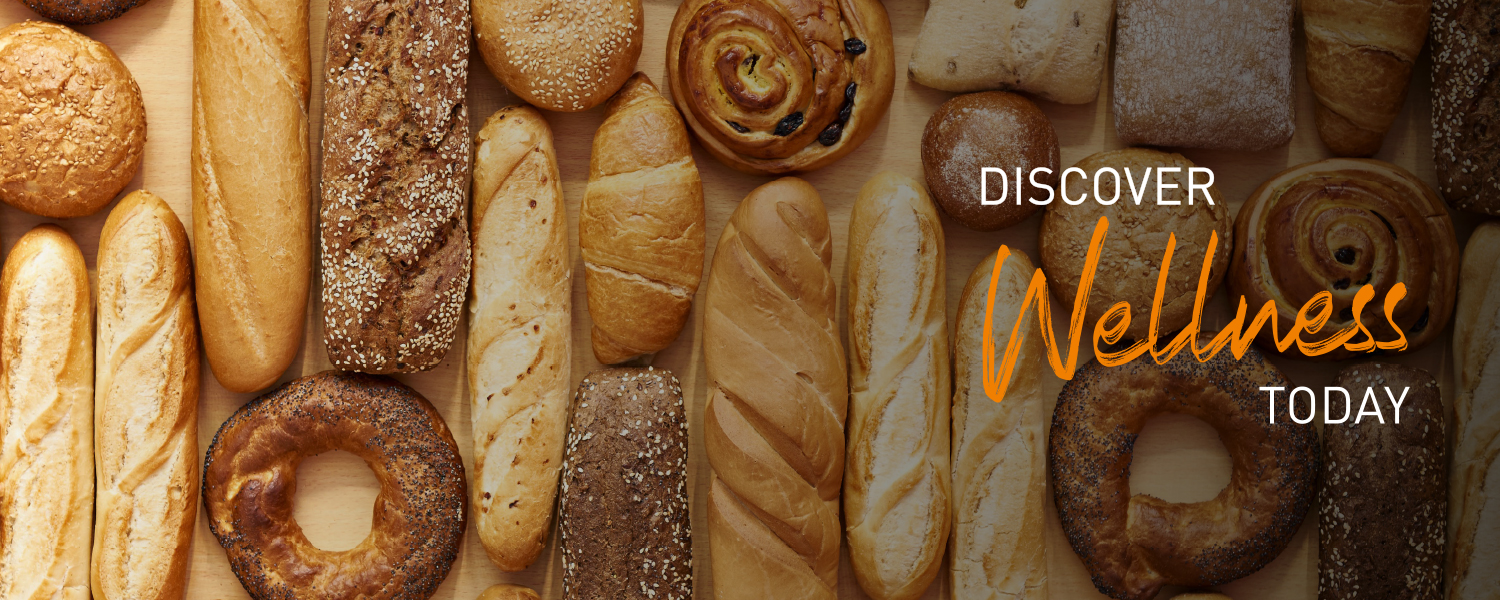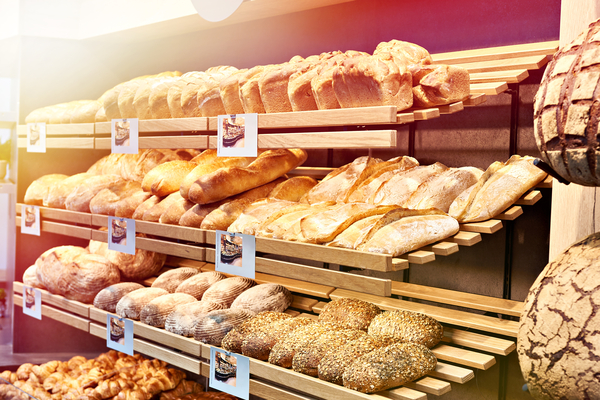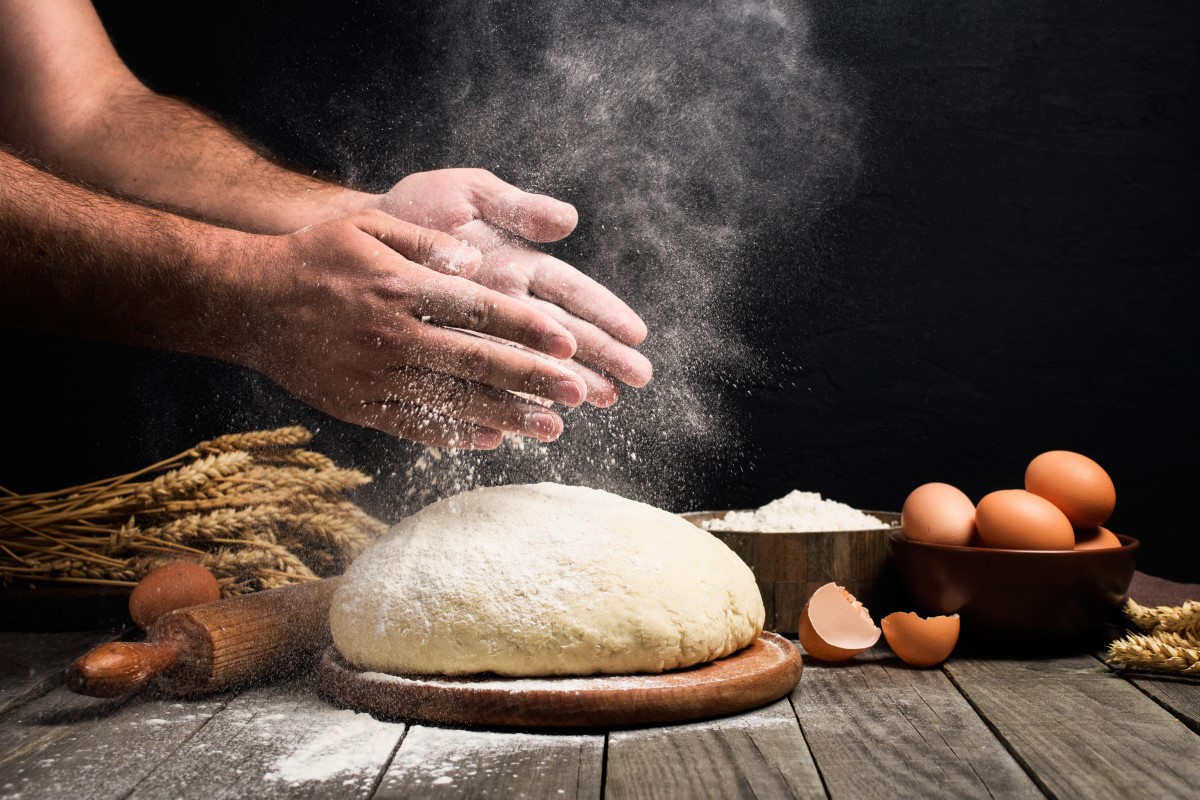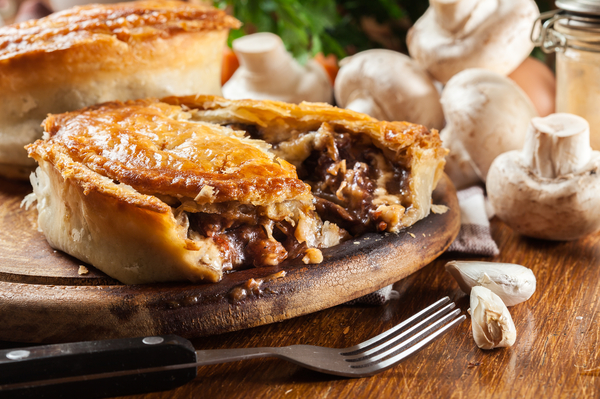
The Healthy Bread Basket
According to Mintel’s 2022 report on Healthy Eating (1), healthy products in the next two years will focus on solutions that support consumers’ self-care practices and boost nutrient density, whilst reducing fat, sugar and sodium.
Europe’s bakery product market is expected to grow at a CAGR of 3.12% in the period 2020-2025 (2). Forecasts for the EMEA bread and bread products in Western European show this market as mature, with the exception of Italy and Switzerland which will show steady growth.
The pandemic has brought health and wellness products to the fore, with preferences in Western Europe moving towards reduced-fat and reduced-sugar, and a desire for more natural and free-from products (3). Every ingredient in every product will need to earn its place on the ingredient list and corresponding front-of-pack labels, contributing to the nutritional component of the product or replacing fat, salt, sugar, or indeed any specified allergen.
Consequently, the industrial baker has opportunities to fulfil the increased demands for healthy in-home and on-the-go baked goods, and inherent challenges in how to deliver them. Melting or crumbling bakery, with improved elasticity, mouthfeel and melting? Better loaf volume, crumb structure, crust colour and bloom? The range of baking enzymes support you in producing new products that appeal to on-the-go consumers who want it all – easy convenience, healthier-for-you, and delicious.
Looking for ways to add fibre and protein enrichment of your baked goods? Extend the shelf life of your gluten-free baked goods? Reduce food waste? Improve dough stability? Make your production more efficient and sustainable? Reduce acrylamide levels in a wide range of baked goods? Let’s discover!

Fibre enrichment
For the Mindful Nutritionist, the definition of ‘enriched’ has broadened to encompass not only some of the wonderful enriched doughs that produce brioche, poffert and cinnamon buns, but to also include ingredients that enrich the body and mind.
More is being discovered about the significant effects of the gut microbiome on holistic health. “Gut microbiota plays a significant role in maintaining host health, which could supply various nutrients, regulate energy balance, modulate the immune response, and defence against pathogens. “ (4) Offering consumers easy ways to boost fibre intake by inclusion in baked goods is one way to attract the Mindful Nutritionist who is looking to improve their immune health. In terms of formulation for bakery, this can be achieved with functional ingredients such as oligofructose, prebiotic dietary fibres derived from sugar beet and cane sugar; or, fibres from potato or pulses.
Discuss Healthy Bakery with the team
Protein enrichment
“The improper and inadequate nutrition intake through diet have put the elderly at a marked risk of PEM (Protein Energy Malnutrition), affecting about 23-60% elderly.” (5) Opportunities exist to deliver protein enriched baked goods, that would benefit the health and wellbeing of specific customer groups, including growing children and the elderly, as well as having a wider appeal for the Mindful Nutritionists and their self-care agenda. This could be achieved using whey protein powders, or if the emphasis is on plant-based, then pulse, oat and wheat proteins offer versatile ways to increase protein content.
In terms of product formulation, the increasing dominance of the plant-based market means that the ingredient list must show the product’s plant credentials, but whilst ‘taste remains king’, the product still must exceed organoleptic expectations.
Discuss Healthy Bakery with the team
Salt Reduction
Formulating baked goods within increasingly stringent framework of front-pack labelling is the challenge of the day, but numerous innovative ingredients now exist to ensure that the products can be successfully formulated to be everything that they need to be.
Product developers have a range of functional ‘replacers’ at their fingertips. Salt reduction can be achieved using potassium-based or calcium-based leavening agents in place of salt, or flavour modulation systems or stevia extracts to enhance the savoury flavour profile.
Discuss Healthy Bakery with the team
Fat Reduction
Fat reduction can be a complex task in bakery applications as fats (butter, margarine and shortening) contribute to texture, mouthfeel, structure and moisture perception. We have a range of starches that has been developed as a fat reduction solution for bakers in the cakes, biscuits and pastry sectors; the level of reduction varies from 20 percent to 70 percent dependent upon application. In addition to the obvious fat reduction benefits, the use of recommended starch can offer the baker the potential to reduce costs without suffering a detrimental impact on eating quality.
Fat reduction in baked goods need not be limited to sources of fat in cakes but also to the decoration of the final product. It is possible to significantly reduce the fat content in butter creams by using a viscosifying starch and, if required, build back the mouthfeel using a co-texturising starch.
In terms of fat reduction, starch-based ingredients from potato or tapioca offer water- and fat-binding properties, whilst maltodextrins from waxy maize mimic the texture and melt-away of soft fats.
Discuss Healthy Bakery with the team
Sugar Reduction
Sugar reduction has seen particular focus on innovation. Natural stevia flavour has become a mainstay of sugar-reduction strategies along with sugar alcohols, polyols, and fructo-oligosaccharides (FOS) that offer a prebiotic, lower calorie alternative to sugar. There is a wide range of sweeteners available to replace sugar and thus reduce short sugars with longer sugars. For bakery applications, cereal and dried fruit extracts may provide not only natural sugar reduction, but also additional desirable properties such as natural colour, depth of flavour and crispness.
Discuss Healthy Bakery with the team
Acrylamide Reduction: a chance to build customer loyalty and future-proof products
More consumers are becoming aware of the potential risks of acrylamide in food, which is partly a result of increasing legislative activity around acrylamide. The EU recently broadened the list of baked goods to be monitored. The full list now includes pitta and specialty breads, pancakes, tortillas, churros, doughnuts and croissants. It also covers a wide range of rolls, including hamburger and whole wheat rolls.
The legislation is predicted to impact European consumers’ awareness of acrylamide. As the proposed legislation creates media interest around the topic, consumer interest will grow. There is also a growing consumer interest in transparency in food production; consumers no longer see this as “somebody else’s business”. Health-conscious, highly engaged consumers will continue to control the online narrative around acrylamide levels.
Transparency in response to consumer questions and understanding of the issues at the heart of the pending legislation could win consumer trust—ultimately translating into market share. By moving early to reduce acrylamide levels, companies would have future-proofed their products against legislative and consumer pressure and against losing access to retailers’ shelves: read more
Discuss Healthy Bakery with the team
Formulating Gluten Free
Gluten-free products have reached a new level of innovation in terms of nutrition profile, variety, and taste, as consumer interest in gluten-free products has transformed the category has transitioned from a niche to a mainstream market segment.
Producing gluten-free bakery products brings with it technical challenges, but solutions are available. For instance, highly functional, gluten-free starch systems allow manufacturers to easily create high quality, gluten-free, baked goods at an affordable cost, as well as increase the protein and fiber contents whilst improving eating quality and texture and ensuring consistency and processability during production.
HPMC / methyl cellulose is also required to bake high-quality gluten-free bread. Their addition leads to bread with improved volume, fine structure, and extended shelf life. Our range of HPMC improves bread quality, stabilizing the bread structure during baking.
Discuss Healthy Bakery with the team
Fresh-keeping for Sustainable Health
Mintel’s 2022 report on Healthy Eating (1) suggests that the focus for the next five years will concentrate on a sustainable food supply chain whilst developing ingredients that act on food waste and loss to help mitigate global hunger and food insecurity. A tall, but necessary, order, and one that will resonate with the Clean Conscience mindset – requiring clean labels and a minimal environmental footprint. For example, enriching baked goods with proteins derived from pea and bean sources, which offer the least amount of greenhouse gas emissions per gram of protein, is both better for me and better for the planet.
For the baked goods market, consideration must be given to sourcing and provenance of key ingredients, and the impact on social equity and conditions of the growers. This, along with information relating to regenerative agricultural practices are, will in time become part of the consumers’ evaluation of the way we do business.
Right now, innovative baked goods manufacturers have at their disposal solutions for creating sustainable and healthier products. Take the example of naturally occurring and sustainable enzymes which are healthy alternatives for industrial baking. Such enzymes can extend the shelf-life of baked goods, result in improved condition and product quality, and improve appearance. Furthermore, since enzymes are typically classified as a processing aid, it is not required to include them in the ingredient declaration, keeping that all important label clean.
Discuss Healthy Bakery with the team
Discover wellness: formulating for healthy nutrition
Explore
References
- Mintel Healthy Eating Report 2022 (prepared for Univar Solutions)
- https://www.mordorintelligence.com/industry-reports/europe-bakery-products-market#:~:text=The%20primary%20driver%20for%20the%20growth%20of%20the,the%20enhanced%20uptake%20of%20the%20healthy%20lifestyle%20concept.
- https://www.euromonitor.com/baked-goods-in-western-europe/report
- https://pubmed.ncbi.nlm.nih.gov/35047537/
- https://www.ncbi.nlm.nih.gov/pmc/articles/PMC6971894/
- https://www.qmul.ac.uk/media/news/2021/smd/new-study-supports-call-for-mandatory-front-of-pack-labelling-to-improve-diets.html 33











 EMEA
EMEA Latin America
Latin America North America
North America Asia
Asia